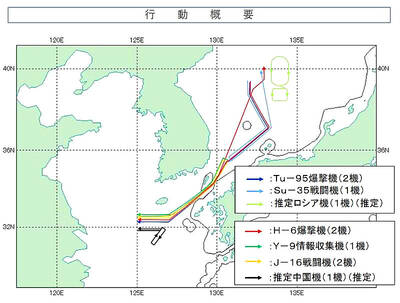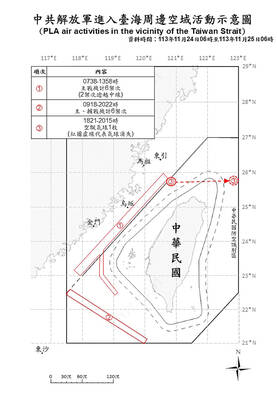When 55-year-old Chiu was diagnosed with breast cancer last September, she was told that after undergoing surgery and chemotherapy, she could better battle a reoccurrence of the cancer by taking a new target-therapy drug called Herceptin. However, she could not afford to pay for the drug because it would cost her NT$1 million a year.
Chiu said her doctor, knowing she couldn’t afford the drug, suggested she take fewer doses, because “less is still better than none at all.”
“My doctor told me that some people are on a NT$500,000 plan, and there are a few people using the NT$350,000 plan,” said Chiu, a mother of two whose husband regularly needs dialysis to cleanse his kidneys.
“But even if I had that much money [NT$350,000], I would save it for living expenses,” she said.
Her two children have already started working, but they each have their own families and Chiu said she did not want to burden them with her “luxury drug.”
“I wouldn’t want to spend my entire savings [on Herceptin]. I still need it for my day-to-day expenses and for my family,” she said. “So when I heard how much the drug costs, I couldn’t even open my mouth to tell my family about it.”
“I didn’t have NT$350,000, and even if I did, I would save it for my family. If I could choose again, I would still save it for my family,” she said lowering her head, hairless from the chemotherapy, to look at her hands.
With less than NT$100,000 in her bank account, she told herself, “I’ll see where life takes me.”
But her cancer reappeared. Early this year, the cancer spread to her bones, and in July, to her liver.
Because the cancer was now so widespread, she finally qualified for coverage under the National Health Insurance (NHI) system for Herceptin treatment in August.
“I watched as the drug entered my body, drop by drop, and I thought, does this drug mean I still have hope, or does it mean I am nearing the end?” she said.
Chiu is one of the more than 6,000 women affected by breast cancer each year in Taiwan.
Breast cancer is the only form of cancer that has been medically proven to be effectively treated with target therapy drugs, said Wang Cheng-hsu (王正旭), president of the Hope Society for Cancer Care.
In target therapy, the chemotherapy targets the molecules that feed tumor growth and allows tumors to spread, which not only effectively prevents cancer recurrence, but also decreases the side effects of conventional chemotheraphy.
Large-scale clinical trials have proven that Herceptin can effectively reduce the recurrence of breast cancer by 36 percent to 52 percent, and reduce the mortality rate by 33 percent to 41 percent, said Chang Hsieh-kun, an attending physician of Chang Gung Memorial Hospital’s medical oncology division and internal medicine department.
But NHI only covers Herceptin for patients whose cancer has metastasized to other parts of the body.
In the UK, Germany, Canada and other developed countries, the governments fully cover the use of Herceptin both for early breast cancer treatment and metastatic breast cancer, while only metastatic breast cancer is reimbursed in Taiwan, Chang said.
“This means that a cancer patient has to wait until the cancer gets really bad in order to receive treatment,” Chang said.
While it might appear to be a greater burden on the NHI to fund target therapy drugs like Herceptin for early stage breast cancer, the contrary is true, he said.
“If we wait until the cancer spreads, the money [for Herceptin] still has to be spent eventually, but if we can stop cancer before it spreads, not only will this benefit cancer patients, but also decrease the social costs involved in caring for them,” he said.
“It’s actually cheaper [for the government] to pay for the drug in early stages of cancer,” Chang said.
Breast cancer is one cancer that is usually detected fairly early, which means patients have the chance to benefit from target therapy drugs before it’s too late, Wang said.
Chiu, like many other cancer patients, is angry that she had to wait until her cancer invaded other parts of her body to receive Herceptin treatment.
“If I was told that there is no cure for my sickness, then at least I could be reassured that this was a problem which could not be solved and I couldn’t do anything about it,” Chiu said.
“Instead I was told that there was a solution, but the solution was too expensive … How is that supposed to make me feel?” she said.
Many patients have to choose between using up their life savings to battle their cancer or giving up.
“Many patients say to me, ‘Should I be glad that my cancer hasn’t spread yet, or feel unlucky because the NHI doesn’t cover my drug?’” Wang said.
Even though cancer is the No. 1 cause of death in Taiwan, killing about 35,000 people annually, only 6 percent of the national health expenditure is spent on cancer treatment, the Bureau of National Health Insurance (BNHI) said in a 2004 report.
The Hope Society for Cancer Care has urged the bureau to speed up the approval process for cancer drugs.
It takes an average of 13.27 months for a drug to go from obtaining marketing approval to the bureau approving it for coverage, Wang said.
Some drugs can take four to six years.
“How can cancer patients wait that long?” Wang said.
BNHI spokesperson Huang Sui-fang (黃穗芬) said that a certain amount of time is needed for a drug to go through the approval process because the bureau must invite experts to meet and discuss whether the drug should be covered under the NHI program.

Theaters and institutions in Taiwan have received 28 threatening e-mails, including bomb threats, since a documentary critical of China began being screened across the nation last month, the National Security Bureau said yesterday. The actions are part of China’s attempts to undermine Taiwan’s sovereignty, it said. State Organs (國有器官) documents allegations that Chinese government officials engage in organ harvesting and other illegal activities. From last month to Friday last week, 28 incidents have been reported of theaters or institutions receiving threats, including bomb and shooting threats, if they did not stop showing the documentary, the bureau said. Although the threats were not carried out,

The Mainland Affairs Council (MAC) on Friday condemned Chinese and Russian authorities for escalating regional tensions, citing Chinese warplanes crossing the Taiwan Strait’s median line and joint China-Russia military activities breaching South Korea’s air defense identification zone (KADIZ) over the past two days. A total of 30 Chinese warplanes crossed the median line of the Taiwan Strait on Thursday and Friday, entering Taiwan’s northern and southwestern airspace in coordination with 15 naval vessels and three high-altitude balloons, the MAC said in a statement. The Chinese military also carried out another “joint combat readiness patrol” targeting Taiwan on Thursday evening, the MAC said. On

‘GRAY ZONE’ TACTICS: China continues to build up its military capacity while regularly deploying jets and warships around Taiwan, with the latest balloon spotted on Sunday The US is drawing up contingency plans for military deployments in Japan and the Philippines in case of a Taiwan emergency, Japan’s Kyodo news agency reported. They would be incorporated in a first joint operation plan to be formulated in December, Kyodo reported late on Sunday, citing sources familiar with Japan-US relations. A US Marine Corps regiment that possesses High Mobility Artillery Rocket Systems — a light multiple rocket launcher — would be deployed along the Nansei Island chain stretching from Kyushu to Yonaguni near Taiwan, Kyodo said. According to US military guidelines for dispatching marines in small formations to several locations,

The Mainland Affairs Council (MAC) yesterday confirmed that Chinese students visiting Taiwan at the invitation of the Ma Ying-jeou Foundation were almost all affiliated with the Chinese Communist Party (CCP). During yesterday’s meeting convened by the legislature’s Foreign Affairs and National Defense Committee, Democratic Progressive Party (DPP) Legislator Michelle Lin (林楚茵) asked whether the visit was a way to spread China’s so-called “united front” rhetoric, to which MAC Deputy Ministry Shen You-chung (沈有忠) responded with the CCP comment. The MAC noticed that the Chinese individuals visiting Taiwan, including those in sports, education, or religion, have had increasingly impressive backgrounds, demonstrating that the